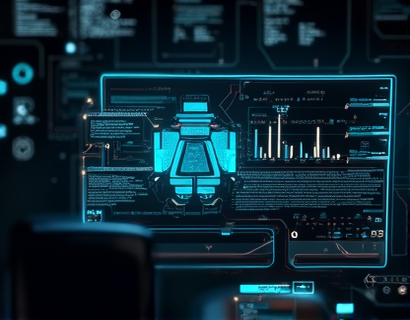Maximizing Healthcare Efficiency: Cutting-Edge Software Solutions for Medical Professionals
In the rapidly evolving landscape of healthcare, medical professionals face numerous challenges that can impede their ability to provide top-notch patient care. From administrative burdens to operational inefficiencies, the demands on healthcare providers are more significant than ever. To address these challenges, advanced software solutions have emerged, designed specifically to streamline administrative tasks, enhance patient care, and boost overall operational performance. These cutting-edge tools empower healthcare providers to focus more on delivering exceptional medical services, ultimately leading to better health outcomes and higher patient satisfaction.
Streamlining Administrative Tasks
One of the most significant benefits of implementing advanced software solutions in healthcare is the streamlining of administrative tasks. Traditional paper-based systems and manual data entry are not only time-consuming but also prone to errors. Modern software solutions automate these processes, reducing the workload on staff and minimizing the risk of human error. Electronic Health Records (EHR) systems, for instance, centralize patient information, making it easily accessible and up-to-date. This not only saves time but also ensures that healthcare providers have the most current data at their fingertips, facilitating better decision-making.
Appointment scheduling is another area where software solutions excel. Automated scheduling systems allow patients to book appointments online, reducing the need for phone calls and minimizing no-shows. Providers can set reminders and send automated notifications, further improving attendance rates. These systems also provide real-time availability updates, ensuring that schedules are optimized and resources are utilized efficiently.
Enhancing Patient Care
Beyond administrative efficiencies, advanced software solutions play a crucial role in enhancing patient care. Patient management systems enable healthcare providers to track patient histories, allergies, and treatment plans in a comprehensive and organized manner. This holistic view of patient data helps in identifying potential issues early and tailoring treatment plans to individual needs. Telehealth platforms, integrated into these systems, allow for remote consultations, expanding access to care and reducing the need for in-person visits, especially for patients with mobility issues or those in remote areas.
Moreover, patient engagement tools, such as mobile apps and portals, empower patients to take an active role in their healthcare. These platforms provide access to health records, medication reminders, and educational resources, fostering a more informed and engaged patient population. By improving communication and involvement, these tools contribute to better health outcomes and higher patient satisfaction.
Boosting Operational Performance
Operational efficiency is critical for the sustainability and growth of any medical practice. Advanced software solutions offer a range of tools to optimize various aspects of healthcare operations. Resource management software helps in allocating staff and equipment effectively, reducing idle time and ensuring that resources are used where they are most needed. Inventory management systems track supplies and equipment, automating reordering processes and preventing stockouts or overstocking.
Financial management is another area where software solutions provide significant benefits. Practice management software includes features for billing, insurance claims, and financial reporting, streamlining the financial processes and reducing the risk of errors. Automated reporting tools generate accurate and timely financial reports, aiding in budgeting and strategic planning. These tools also help in identifying areas for cost reduction and improving overall financial health.
Improving Data Security and Compliance
Data security and compliance are paramount in healthcare, given the sensitive nature of patient information. Advanced software solutions are designed with robust security measures to protect data from breaches and cyber threats. Encryption, multi-factor authentication, and regular security audits are standard features in modern healthcare software. These measures ensure that patient data remains confidential and secure, helping practices meet regulatory requirements and maintain patient trust.
Compliance with regulations such as HIPAA in the United States is mandatory for healthcare providers. Software solutions are built to comply with these regulations, automating compliance checks and providing tools to manage and document compliance efforts. This not only simplifies the compliance process but also reduces the risk of penalties and legal issues.
Facilitating Collaboration and Communication
Effective collaboration and communication among healthcare providers are essential for delivering coordinated and high-quality care. Advanced software solutions include collaboration tools that enable seamless communication between different departments and healthcare professionals. Integrated messaging systems, shared document repositories, and collaborative workspaces facilitate real-time information sharing and teamwork.
Interoperability is a key feature of modern healthcare software, allowing different systems and platforms to work together seamlessly. This ensures that patient information is consistent and up-to-date across all touchpoints, reducing the risk of miscommunication and errors. By fostering a more connected and collaborative environment, these tools enhance the overall quality of care.
Supporting Remote Monitoring and Telemedicine
The rise of remote monitoring and telemedicine has been accelerated by the COVID-19 pandemic, and advanced software solutions are at the forefront of this trend. Remote monitoring devices and applications allow healthcare providers to track patient health metrics in real-time, even from a distance. This is particularly beneficial for chronic disease management, where continuous monitoring can prevent complications and hospitalizations.
Telemedicine platforms integrated with these monitoring tools enable virtual consultations, expanding access to care and reducing the need for in-person visits. These platforms support various modalities, including video consultations, messaging, and file sharing, making remote care more accessible and convenient for both providers and patients. By embracing these technologies, healthcare practices can improve patient outcomes and operational efficiency.
Enhancing Training and Education
Continuous learning and professional development are crucial for healthcare professionals to stay updated with the latest medical advancements. Advanced software solutions offer training and education modules that cater to the diverse needs of medical staff. Online courses, webinars, and interactive learning platforms provide convenient and flexible ways to acquire new skills and knowledge.
These educational tools can be integrated into the daily workflow, allowing providers to access training materials and complete courses at their own pace. This not only enhances the skills of the workforce but also contributes to better patient care and operational efficiency. By investing in the continuous education of their staff, healthcare practices can maintain a high level of expertise and adaptability.
Conclusion
In conclusion, advanced software solutions offer a comprehensive set of tools that can significantly enhance the efficiency and effectiveness of healthcare practices. By streamlining administrative tasks, enhancing patient care, boosting operational performance, and supporting remote monitoring and telemedicine, these solutions enable medical professionals to focus more on delivering exceptional medical services. As the healthcare landscape continues to evolve, embracing these cutting-edge technologies will be essential for staying competitive and providing the best possible care to patients.











































